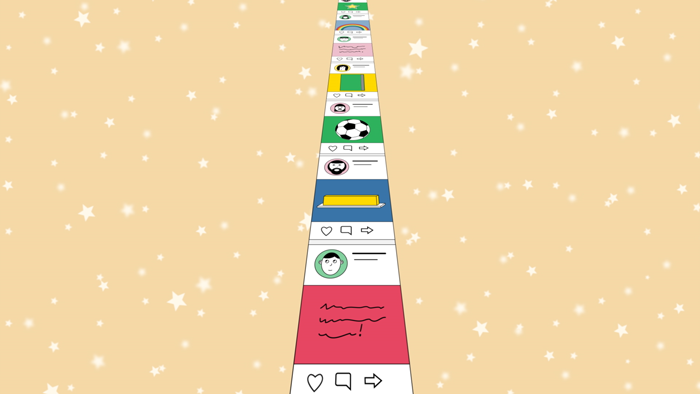Put an End to Your Endless Scrolling
An endless scrolling feature easily addicts users to social media, which is profitable for social media companies.
May 18, 2022
Social media has changed the world by allowing for increased connectivity between people and the faster diffusion of ideas. To enhance social media features, some platforms, including TikTok, Instagram, and YouTube, have included a way to scroll through posts and videos endlessly. While this feature may be useful to provide a constant stream of new information, it can also be addicting, which causes numerous negative effects.
Social media companies purposely design their platforms to addict their users. As former Mozilla and Jawbone employee Aza Raskin says, “In order to get the next round of funding, in order to get your stock price up, the amount of time that people spend on your app has to go up.” Thus, to improve their platforms, these companies must find a way to increase the retention of users, which they accomplish with the endless scroll.
The addiction to the endless scroll causes problems associated with time management. People often find themselves glued to their devices scrolling through content for hours at a time, often without even realizing it. Even if people plan to only spend a few minutes scrolling, they can easily find themselves falling down the rabbit hole of social media content. Teenagers are especially prone to this problem; after coming home from school, teens open their social media apps to quickly check to see the latest updates from the world around them. However, teens waste hours just scrolling through content, causing them to be forced to start their work late in the evening and lose hours of sleep.
So, how can people avoid the addictive trap of the endless scroll? One extreme yet effective solution would be to delete social media altogether. Even though deleting social media may cause people to lose connectivity with others, doing so will eliminate the possibility of unknowingly wasting hours scrolling.
In addition to improving time management, deleting social media can also improve mental health. Spending less time aimlessly browsing content gives people more time to spend with others. An increase in social interaction is scientifically proven to prevent depression, anxiety, and sleeping disorders (Medical News Today).
Although quitting social media will likely cause an individual to miss out on important information that is spread through various platforms. Piper Guyton (11) agrees and says, “I hear about many global issues through social media, so deleting it would make me uninformed of what is happening around me.” While this is true, the benefits of deleting social media certainly outweigh the drawbacks; other than experiencing an improvement in time management, individuals may also see drastic improvements in mental health (HuffPost).



































